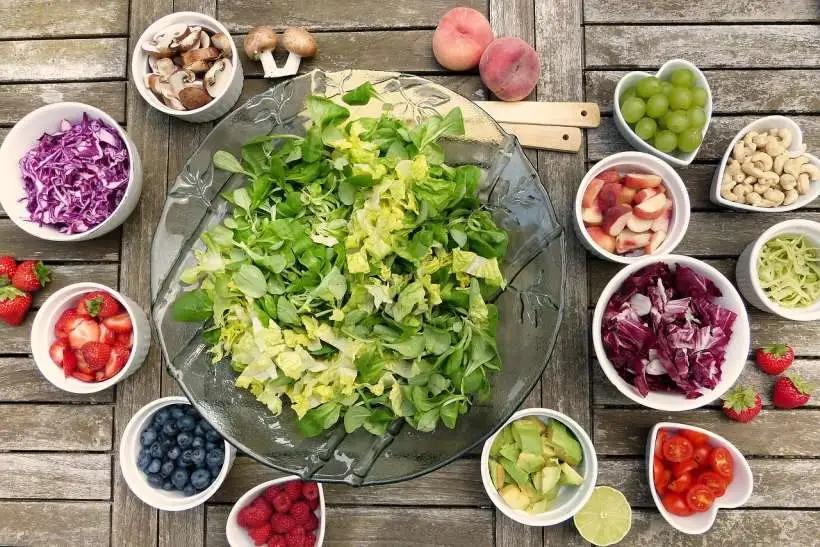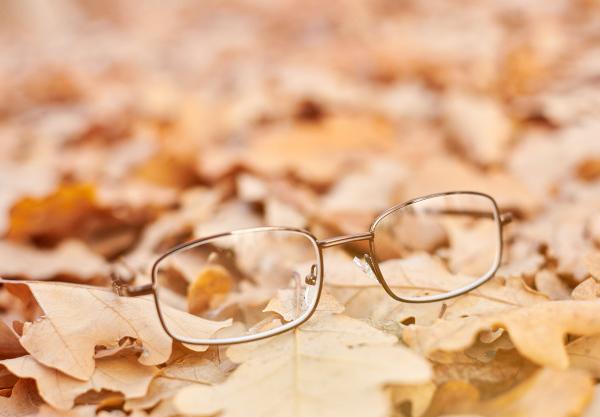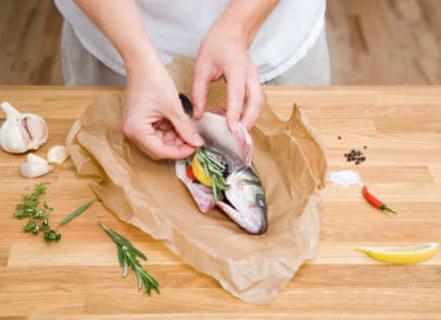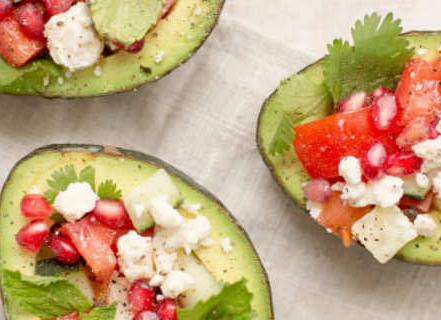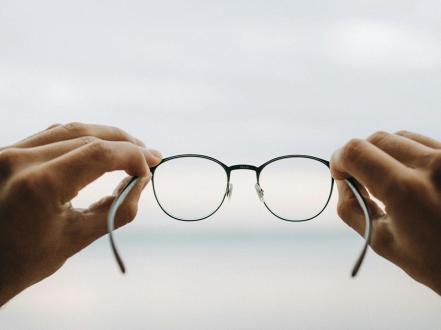The influence of some products on the health of various human systems is confirmed by numerous studies. For example, if you replace fats of animal origin with vegetable oils, the risk of developing atherosclerosis of blood vessels is significantly reduced. Oatmeal for breakfast improves the digestive system. If you include ripe tomatoes with olive oil in your diet, you can prevent the development of heart diseases. There are also good products for the eyes. Let’s find out the best foods for eyesight and why they should be eaten by everyone who wants to preserve their eyesight for many years.
Vision impairment can be caused by a variety of factors, ranging from congenital defects to injury-related complications. However, it is important to note that our lifestyle and food have an impact on our eyes' health. A well-balanced diet containing vitamins for the eyes is one of the most essential aspects of ensuring excellent health.
Keep in mind that even being aware of what kind of products are beneficial for the eyes, they must be included in the diet regularly. What is important here is not the amount of food that enters the body per intake, but the systematicity of their use. Only in this case can we talk about the effectiveness of prevention of eye diseases.
What are the most vital elements for eye health?
One of the studies showed that there is a close connection between poor nutrition and deterioration of vision. People who do not have enough zinc, antioxidants, vitamins C and A in their diet are prone to the earlier development of cataracts and retinal diseases.
Some of the most pivotal elements are potassium, calcium, selenium, and lutein, as the antioxidants they contain help maintain eye health.
A sufficient amount of these trace elements and vitamins will be able to slow down the development of cataracts, improve visual acuity and circulation in eye tissues, restore the work of the optic nerve, and slow down myopia.
Another nutrient for the eyes is Omega-3. Omega delays cataracts, reduces dry eye phenomena, and also slows down the development of myopia. So, by eating fatty fish, you protect your eyes from many problems at the same time.
If there is not enough vitamin A in the body, the synthesis of the visual pigment rhodopsin is disrupted, and in the future, there are risks of developing night blindness (deterioration of clarity in insufficient lighting). If a person lacks riboflavin, it can cause a rupture of small vessels and poor visibility at dusk.
However, you should know how to reach the balance. An excess of one or another vitamin in the body can be harmful.
Eat well, choose healthy foods good for vision, and visit an ophthalmologist at least once a year. If necessary, a specialist will select vitamin complexes for you.
How can I incorporate eye-healthy foods into my diet?
Unusual Flavors: It is possible to be creative by using traditional eye-healthy ingredients with global flavors. With a Thai-inspired mango and avocado salad with a zesty lime dressing, you can make your diet diverse and tastier than ever. Thus, combining the colors of mangoes and leafy greens is a great choice for your eyes. Or you can experiment with a Mediterranean taste and incorporate grilled eggplant and roasted red peppers into a quinoa tabbouleh. This option is rich in vital antioxidants. As you can see, lots of interesting ideas can help us enjoy products that are vital for our eyes.
Rainbow Bowls: Anyone who seeks a solution for their eyes can build visually stunning rainbow bowls with a spectrum of colorful fruits and vegetables. Berries and leafy greens or crunchy carrots and bell peppers, each color offers a unique set of vitamins and antioxidants beneficial for eye health. It is possible to mix and match different textures and flavors to create a pleasant experience for our senses. Moreover, you can add nuts or seeds for added crunch and protein. It is a great idea for taste buds and eye health.
Superfood Smoothies: Superfood smoothies are capable of nourishing your eyes from the inside out. Incorporate ingredients like kale, spinach, and spirulina, rich in vitamins A, C, and E, along with omega-3 fatty acids from chia seeds and flaxseeds for defending your eyes. Adding naturally sweet fruits like bananas, berries, and mango creates a smooth texture.
These innovative and distinctive techniques will allow you to enjoy a range of tasty and eye-healthy meals that nourish both your body and spirit.
Are there any foods I should avoid for eye health?
When learning about the best foods for eyesight, a natural question arises: are there foods that are frankly harmful? Fortunately, there are no particular products that will make you see worse or get eye diseases. It is only important to limit the consumption of salt, aggressive seasonings, and dyes, and to observe balance in food. This is not difficult, given the fact that the list of products that are good for vision is extensive. They are enough to form a complete diet. Nevertheless, let's consider a few options that are better to minimize in your eye diet:
- The caffeine contained in coffee causes an increase in intraocular pressure. Frequent consumption of strong coffee can lead to the development of myopia and glaucoma.
- Eating salty foods leads to fluid retention in the body. The negative result of this is not only swelling of the eyelids. Due to fluid stagnation, tissue nutrition is disturbed, and intraocular pressure increases. Do you want to keep your eyes healthy? Reduce the use of salt to the necessary minimum and teach the children to keep the diet.
- Sweets impair vision. This is another group of products about the harm of which it is necessary to regularly remind children. Sweet foods and drinks have a negative effect on the retina. This is confirmed by various visual dysfunctions that often accompany a disease such as diabetes.
- When abusing alcoholic beverages, the blood supply to the retina and cornea is disrupted, and vascular spasms occur.
- Fatty fried food is harmful to the whole body with its constant consumption. It leads to the formation of atherosclerotic plaques. Because of this, the risk of vascular thrombosis and eye stroke increases.
It is not necessary to completely exclude products harmful to vision from your diet. However, if maintaining and strengthening eye health is an important task for you, listen to the recommendations and reduce their use to a minimum. Even if you have good eyesight, you need to eat healthy, adding necessary fruits, nuts, and seafood. Your eyes will be extremely grateful for such help, and eye diseases will not bother you for a long time.
What is definitely welcome is a complete and varied diet of the products listed above, four meals a day, and balance because overeating is not the best friend of health. Take care of your vision in advance.
What are some delicious recipes featuring eye-healthy ingredients?
For those who work a lot at the computer, with texts or graphics, this salad is a real treasure.
A cheerful orange color is given to the tasty gifts of nature by carotene, provitamin A, which is responsible for good eyesight.
In addition, orange is among the leaders in terms of vitamin C, which is the basis of strong immunity. Dried apricots contain many useful minerals, especially potassium, calcium, iron, and magnesium.
So, in order to have healthy eyes, you should eat the following salad: mix 1 grated carrot, several pieces of chopped dried apricots, 1 piece of chopped orange, and 1 tablespoon of honey and wait for 5-10 minutes. That's it, the useful salad is ready.
The orange color and sweet-sour taste of citrus improve appetite, so such a sweet salad can be eaten before the main meal and offered to children. After such treats, they will have lots of energy.
Which food is best for eye well-being?
You can find a large amount of antioxidants in green leafy vegetables: dark green cabbage, spinach, and fresh parsley. This is exactly what is available in the warm season, and what we can enjoy with pleasure.
Carotenoids, also very useful for eye health, are found in corn, broccoli, pumpkin, zucchini, red grapes, green or orange sweet peppers, and kiwi. Carotenoids are also found in eggs, especially in the yolk.
Carrots and carrot juice are simply irreplaceable in maintaining eye health. They improve visual acuity, they are very rich in carotene and vitamin A. Vitamin A is also found in blueberries, apricots, avocados, and yellow bell peppers.
Milk, beef, cheese, and bread are full of zinc which is pivotal to prevent cataracts.
Can diet improve eyesight?
Many people who have discovered the first signs of reduced visual acuity often ask: "Are there any foods that improve vision”? Unfortunately, it is not possible to restore or improve seriously impaired vision with a diet. If farsightedness or other pathological conditions have developed, changing the diet will not help, it will only support defending mechanisms and bring vital vitamins to the eyes. However, such conditions require a well-created treatment scheme with visual gymnastics, correction with optical products, or even surgery.
However, you definitely can support and preserve eye health by adding the best foods for eyesight to the menu.
What drink is good for eyesight?
Orange Juice
If you want a drink that is easily accessible in grocery shops and does not require a blender, orange juice might be the eye-boosting drink for you. Oranges are a high source of vitamin C, which reduces the risk of cataract development and keeps ocular blood vessels robust and stable. Orange juice also includes folate, which is an important B vitamin for embryonic eyesight development.
Coconut Water
If you don't like the flavor of plain water, add a bit of coconut. Coconut water is one of the great drinks, and it's available at almost every grocery shop. It contains practically every vitamin, mineral, amino acid, and electrolyte needed for good vision. Coconut water also helps with glaucoma, an optical disorder that gradually affects tiny blood vessels and the optic nerve.
Berry Smoothie
The various antioxidants included in all varieties of berries aid the body in combating oxidative stress, which is critical for the eyes.
It is important to remember that nutrition alone cannot guarantee complete prevention of eye diseases. Regular eye examinations by a specialist, healthy choices, and compliance with other care recommendations are also important.
